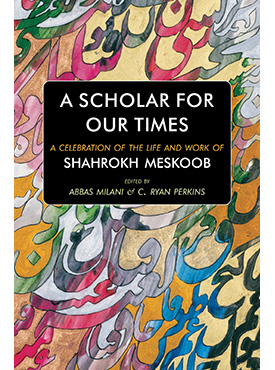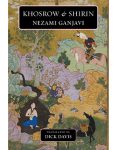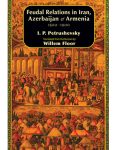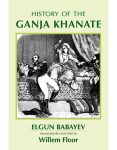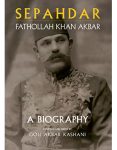About the Book
This book is part of a series of Iranian Studies publications made possible by the Hamid and Christina Moghadam Program in Iranian Studies at Stanford University.
Shahrokh Meskoob was an Iranian writer and intellectual, who was born in Babol, on the Caspian coast, in 1924 and died in Paris in 2005. Imprisoned in the mid-1950s for leftist activities, he was forced to leave the country following the Islamic Revolution of 1979, after publishing two critical articles in the Ayandegan newspaper in Tehran.
Meskoob’s literary analysis of the Shahnameh and the poetry of Hafez, and his book Iranian National Identity and the Persian Language, all translated into English, demonstrate his view that national identity meant cultural identity and that modernity in Iran should be based upon an understanding of the best of Iranian culture.
This book celebrates Meskoob’s life and work in eight essays by prominent Iranian scholars and in a selection of facsimiles of his papers, now archived at Stanford University.
Reviews
coming soon
Contents/Excerpt
Stanford Libraries and the Papers of Shahrokh Meskoob,
C. Ryan Perkins
Hassan Kamshad
Ahmad Meskoob
Gita Ostovani
Ali Banuazizi
Bahram Beyzaie
Reza Farokhfal
The Concern for Form in Three Narrative Texts of Shahrokh Meskoob , 75
Sorour Kasmaï
Abbas Milani
About the Author
Raised in Iran, Abbas Milani was sent to be educated in California in the 1960s. He became politically active and in 1974 received a PhD in Political Science. He returned to Tehran and taught at the National University but was imprisoned by the Pahlavi regime in 1977. After the revolution he became a professor at Tehran University, but by 1986 his utopian illusions had been shattered and he emigrated to the United States. Dr. Milani is the Hamid and Christina Moghadam Director of Iranian studies at Stanford University and co-director of the Iran Democracy Project at the Hoover Institution. His works include, Tales of Two Cities: A Persian Memoir, The Persian Sphinx: Amir-Abbas Hoveyda and the Riddle of the Iranian Revolution, Lost Wisdom: Rethinking Modernity in Iran, and a translation of Houshang Golshiri’s King of the Benighted.

